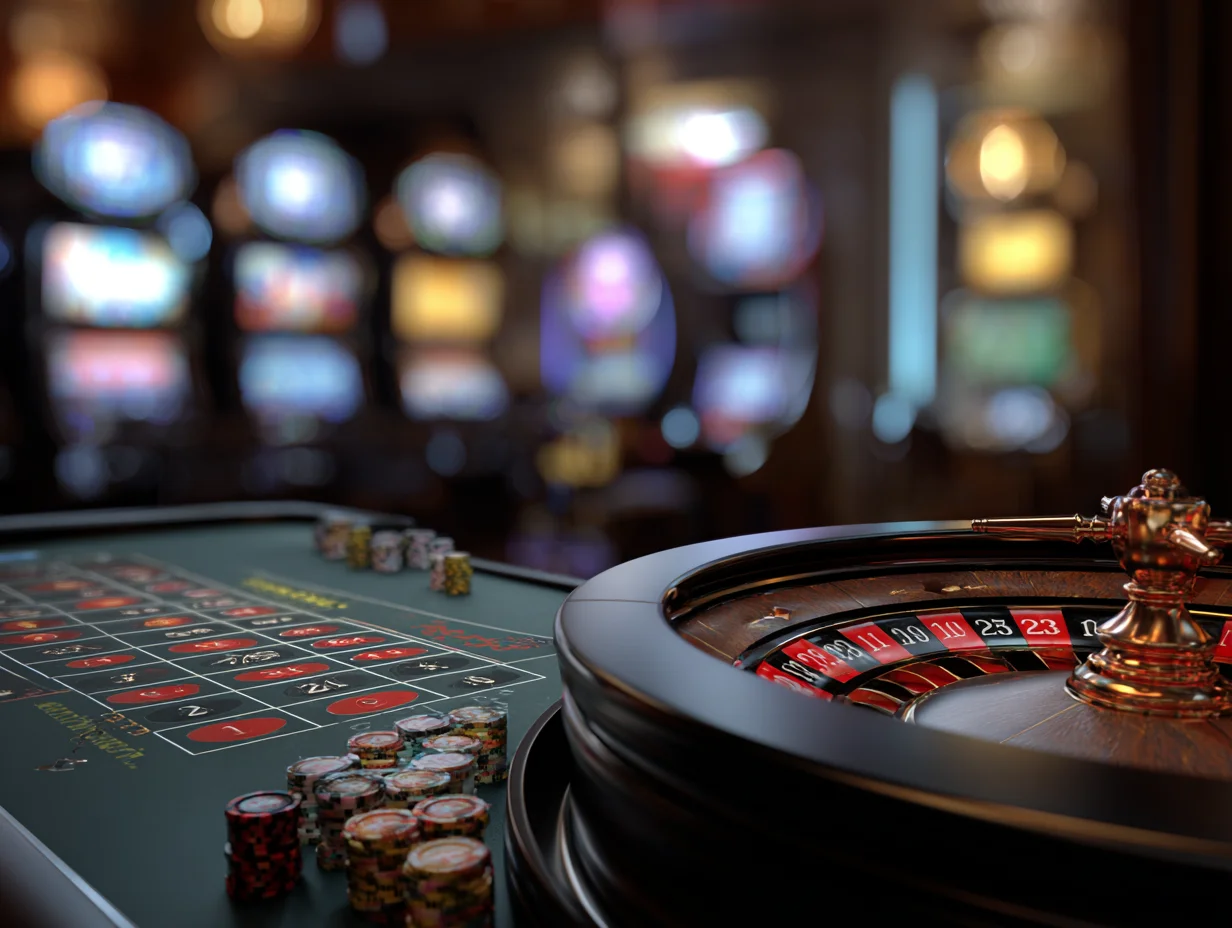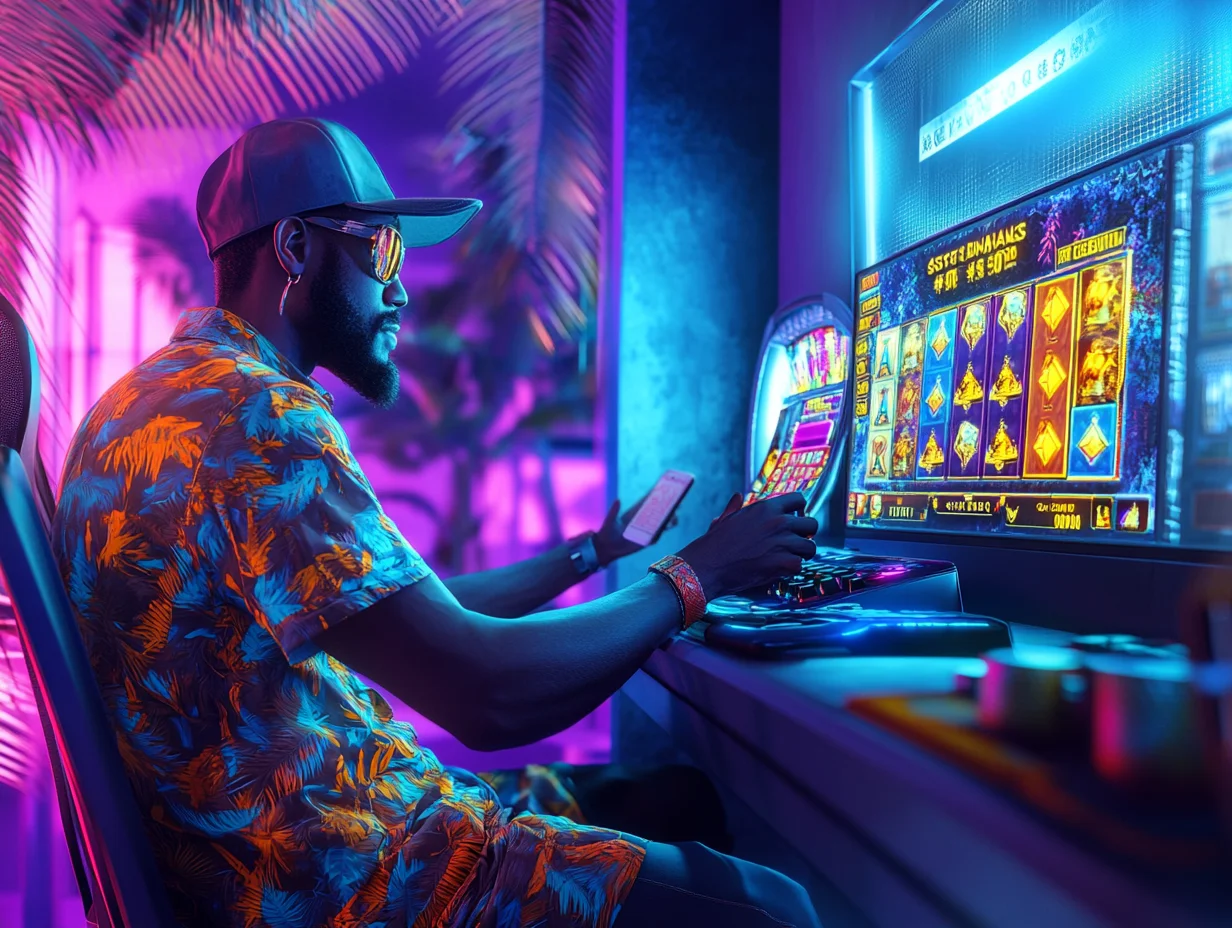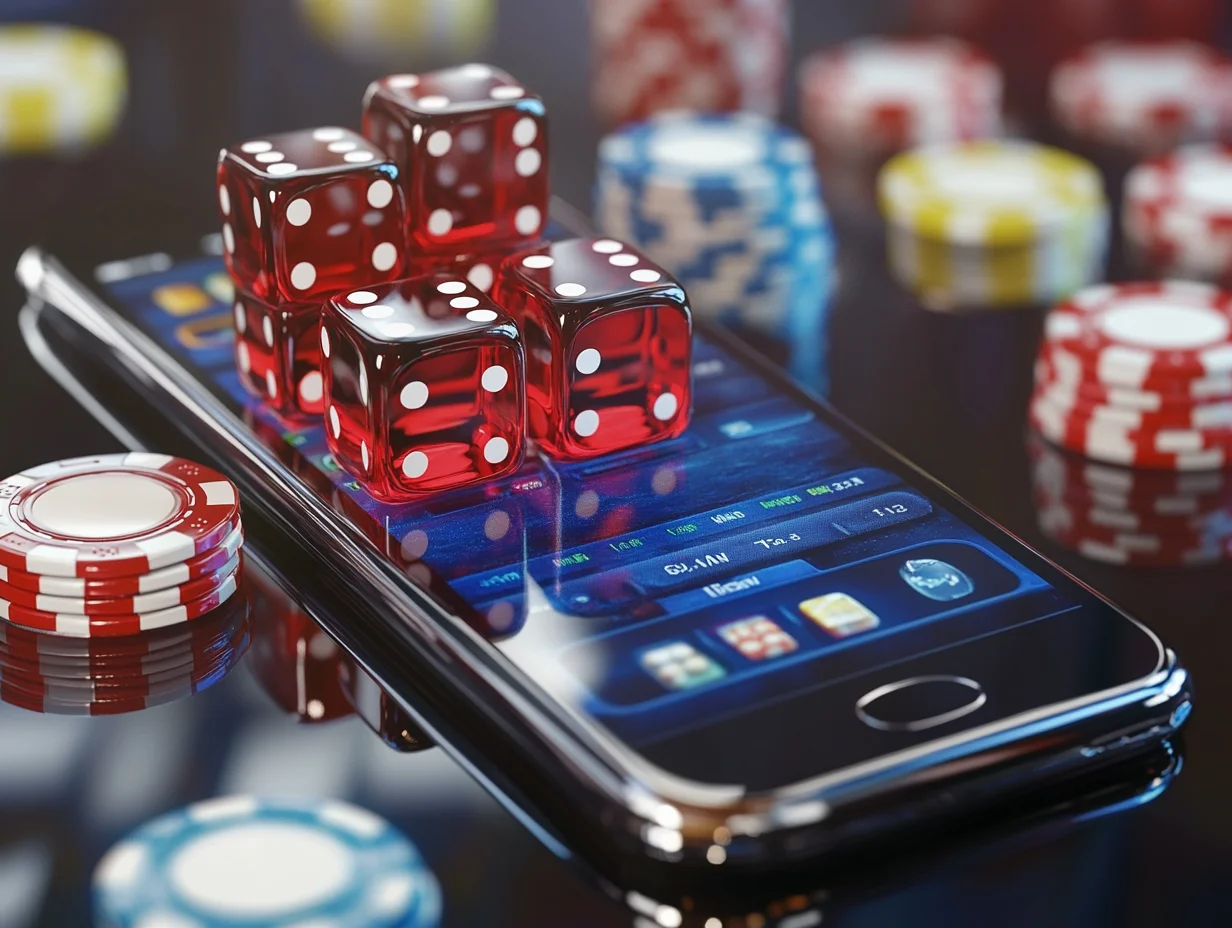Introduction
Gambling is becoming a growing concern across Papua New Guinea.
Whether it’s pokies in local venues, informal card games, or online betting through mobile apps, the temptation to gamble is more accessible than ever.
While some people enjoy it casually, many find themselves caught in a cycle of chasing losses, financial stress, and emotional guilt.
If you’re reading this, you may already be feeling the effects—maybe you’ve lost more money than you can afford, argued with family about gambling, or feel like it’s taking over your life.
The good news is: you’re not alone—and it’s never too late to take back control.
This guide is here to help you do exactly that.
Whether you want to stop gambling completely or take the first step toward reducing it, you’ll find practical strategies, local advice, and emotional support right here.
These steps have helped others across PNG and beyond—and they can help you too.
1. Admit There’s a Problem
Every journey to recovery starts with one powerful step: telling yourself the truth.
It can be difficult to admit when gambling has gotten out of hand.
You might tell yourself it’s just a bit of fun, that you’ll win it back next time, or that you can stop anytime you want.
But if you’ve ever spent money meant for food or bills, borrowed to cover losses, lied to loved ones, or felt ashamed after gambling—those are signs that it’s more than just a game.
Admitting there’s a problem doesn’t make you weak—it makes you brave. It takes real courage to look in the mirror and say, “This is hurting me, and I want to stop.”
This step isn’t about blaming yourself.
It’s about facing the truth with honesty and self-respect, and choosing to make a change—not someday, but starting now.
You can’t fix what you won’t face.
But once you do, the path forward becomes clearer—and much more possible.
2. Talk to Someone You Trust
Gambling problems often grow in silence.
The more you keep it to yourself, the heavier the burden becomes—and the easier it is to slip deeper into the habit.
That’s why one of the most powerful steps you can take is to open up and talk to someone you trust.
It could be a close friend, a parent, a spouse, a church leader, or even an elder in your community.
You don’t have to go into full detail right away.
Just saying something as simple as, “I’m struggling with gambling and I don’t want to do it anymore,” is enough to break the silence and open the door to real support.
When you speak up, three important things happen:
- You release the pressure you’ve been carrying alone.
- You create accountability—someone knows you’re trying to change.
- You open the way for help, encouragement, and even practical support with money or decision-making.
Many people fear being judged or shamed—but more often than not, loved ones respond with compassion and a willingness to help.
And if the first person you talk to doesn’t understand, don’t give up.
Keep reaching out until you find someone who listens.
You were never meant to carry this on your own.
Support is strength, not weakness.
The moment you speak up is the moment you begin to take your power back.
3. Get Help from Local Support Services
Stopping gambling on your own can feel overwhelming—but you don’t have to do it alone.
Across Papua New Guinea, there are community resources, health workers, and non-profit organisations that can offer the guidance, support, and counselling you need to start your recovery journey.
While PNG may not have a national gambling hotline or widespread formal treatment centres like other countries, there are still ways to access help.
Where to Start in PNG
- Lifeline PNG: A confidential helpline offering emotional support for anyone in distress. You can call them even if you just need someone to talk to.
- Community Health Centres: Many local clinics have trained staff or can refer you to mental health services or social workers who understand addiction.
- Churches and Religious Leaders: In many PNG communities, faith leaders are a trusted source of counselling, guidance, and support. Don’t hesitate to approach someone you respect.
- NGOs and Youth Organisations: Groups like ChildFund PNG, City Mission, and other community-based programs often run outreach and support initiatives that include addiction and behaviour change support.
If you have internet access, you can also explore international tools and resources.
For example, Gambling Help Online Australia offers free, 24/7 live chat, educational content, and self-help tools—even if you’re not an Australian resident.
Why Professional Support Matters
Talking to friends and family is important—but trained counsellors and support workers can help you go deeper.
They can:
- Teach you how to manage urges and relapses
- Help you rebuild self-esteem and confidence
- Guide you through budgeting and financial recovery
- Support you emotionally when you feel stuck or ashamed
And best of all, you don’t need to wait until things are “really bad” to reach out.
Help is for anyone ready to make a change—at any stage.
You don’t have to figure everything out on your own.
The support you need to stop gambling in Papua New Guinea is out there—and it starts with a simple step: ask.
4. Block Access to Gambling Apps and Venues
If you want to stop gambling in Papua New Guinea, one of the most effective things you can do is remove easy access to it. Gambling thrives on convenience.
The easier it is to place a bet, spin a machine, or tap an app, the harder it becomes to resist the urge—especially when you’re feeling stressed or bored.
That’s why blocking access is such a powerful move.
It’s not about punishment—it’s about creating distance between you and the habit, so you have time to think clearly and make better choices.
Start with Your Phone
If you gamble online or through mobile apps, your first step is to:
- Delete all gambling apps from your phone or tablet
- Log out of online betting accounts and change your passwords
- Ask someone you trust to help you set parental controls or install app blockers
- Disable or uninstall mobile payment apps like M-Paisa or MiBank if they’re linked to gambling activities
If you’re tech-savvy or have internet access, you can also try free blocking tools like BetBlocker, which limits access to gambling websites across devices.
Avoid Gambling Venues
In many PNG communities, gambling happens not only in formal settings like licensed pubs, but also in informal setups—house pokies, card games, or hidden corners of local clubs.
Try to:
- Avoid known gambling locations, even if you’re just passing through
- Take alternate routes if certain venues are part of your daily routine
- Politely decline invitations to “just watch” or “play a few rounds”—that’s how the habit sneaks back in
- Ask trusted family or friends to go with you if you’re worried about being tempted
Why Blocking Access Works
When gambling is not within reach, your brain has space to refocus.
The automatic urge to place a quick bet or walk into a venue becomes harder to act on—and that moment of pause is all you need to make a different choice.
You’re not saying no forever—you’re just making it harder to say yes in a moment of weakness.
Protect your peace by protecting your environment.
If you reduce your exposure to gambling triggers, you give yourself the best chance to heal and move forward.
5. Replace the Habit with Healthier Activities
Quitting gambling isn’t just about saying “no” to bets—it’s about finding something better to say “yes” to.
Gambling often fills a gap: boredom, loneliness, stress, or the need for excitement.
If you simply try to cut it out without replacing it, that empty space can feel overwhelming—and eventually, the habit creeps back in.
That’s why one of the most important parts of recovery is to replace gambling with healthier, more meaningful activities that bring joy, structure, and purpose to your life.
Understand What Gambling Gave You
Ask yourself:
- Was I gambling because I was bored?
- Did it help me escape stress or problems?
- Did I like the thrill of winning—or even the routine of playing?
Once you understand what emotional need gambling was satisfying, you can choose better ways to meet it.
What You Can Do Instead
- If you’re bored, try something new: join a sports team, pick up a musical instrument, garden, cook, or learn a skill that excites you.
- If you’re stressed, practice deep breathing, journal your thoughts, go for a walk, or talk to someone instead of bottling it up.
- If you’re lonely, spend more time with family, join a local group, or get involved in your church or community activities.
- If you miss the thrill, try healthy challenges like hiking, playing competitive (non-gambling) games, or setting savings goals and watching them grow.
You don’t need expensive hobbies—just consistency and a willingness to try.
Build a Daily Routine
When you’re trying to stop gambling, structure helps.
Create a daily or weekly routine that keeps you focused:
- Wake up and go to bed at the same time
- Plan your meals and responsibilities
- Schedule time for hobbies, social interaction, and rest
- Avoid long stretches of unstructured time, which often leads to temptation
The more you fill your days with positive actions, the less space gambling will have in your life.
Be Patient with Yourself
It might take time to find what works for you—and that’s okay.
The goal isn’t perfection, it’s progress.
Every day you spend building new habits, you’re creating a stronger version of yourself—one that no longer needs gambling to cope, connect, or feel alive.
You’re not just quitting a habit—you’re creating a better life in its place.
6. Limit Access to Cash and Bank Accounts
If you want to stop gambling in Papua New Guinea, one of the most powerful moves you can make is this: cut off your access to money that fuels the habit.
Gambling doesn’t happen without cash or digital payment—and in many cases, the urge to bet is strongest when money is right there in your hands.
That’s why setting up financial barriers isn’t just helpful—it’s essential.
Why It Works
When money is hard to access, it gives you time to think.
Instead of acting on impulse, you’re forced to pause.
That short delay can be the difference between placing a bet and walking away.
Controlling your money gives you back control over your decisions.
Practical Ways to Limit Access to Gambling Money
- Ask a trusted family member or friend to help manage your money temporarily. Let them hold your bank card, control withdrawals, or help you budget each week.
- Use a separate account for your savings—one that isn’t linked to your ATM card or mobile wallet. If possible, open an account that requires two signatures for withdrawal.
- Don’t carry large amounts of cash on you. Only take what you need for the day.
- Delete mobile wallets or limit their use, especially if they’re connected to online gambling platforms.
- Avoid borrowing money or using credit schemes. The more financial freedom you have, the easier it is to fall back into risky behaviour.
Take Back Control One Step at a Time
It’s not forever.
These strategies are here to protect you while you rebuild your discipline.
Over time, as you get stronger and gain more control over your decisions, you can slowly take back financial responsibility in a healthier, more confident way.
The goal isn’t to punish yourself—it’s to create space to heal and grow.
With stronger boundaries around money, gambling loses its grip.
7. Understand What Triggers You
Every gambling habit has a trigger—a reason it starts.
It could be emotional, social, environmental, or even just a time of day.
Understanding your triggers is a powerful step in recovery because it helps you recognise the pattern before it pulls you in.
Most people don’t gamble “just because.”
They gamble because they feel bored, lonely, stressed, angry, or even excited.
Identifying what makes you reach for a bet is like learning where the cracks are in the wall—once you see them, you can stop the damage before it spreads.
Common Triggers Include:
- Stress or frustration after a long day
- Boredom, especially during weekends or evenings
- Loneliness or wanting to escape reality
- Alcohol or peer pressure in social settings
- Getting paid and feeling like you have “extra money”
- Seeing gambling ads, texts, or old apps on your phone
Ask yourself:
“When do I usually gamble?”
“What was I feeling just before I placed a bet?”
“Who was I with, or what was I doing?”
By answering these, you’ll start noticing patterns—and once you see them, you can break them.
How to Manage Triggers
- Avoid known triggers when possible. For example, if payday tempts you, transfer funds to a trusted family member or savings account immediately.
- Create new routines during vulnerable times. Replace gambling hours with a walk, hobby, or social call.
- Practice pause techniques—when a craving hits, wait 10–15 minutes before doing anything. The urge often passes on its own.
- Remove digital triggers like gambling apps, promotional texts, or bookmarks to betting sites.
You don’t need to be perfect—just prepared.
Awareness is your shield, and the more you understand yourself, the easier it becomes to stay in control.
Gambling isn’t random—it’s usually a response to something deeper.
When you learn your triggers, you take away gambling’s power to sneak up on you.
8. Set Small Goals and Celebrate Each Win
Quitting gambling isn’t something that happens all at once.
It’s a journey made up of small, consistent steps—and every step forward counts.
That’s why one of the smartest strategies in recovery is to set simple, realistic short-term goals and take time to celebrate your progress.
These mini victories remind you that you’re moving forward, even if it doesn’t always feel like it.
Start Small and Build Momentum
You don’t need to think about quitting for the rest of your life—just focus on the next 24 hours, the next week, or even the next hour.
Examples of small goals:
- “I won’t gamble today.”
- “I’ll talk to someone instead of betting when I feel triggered.”
- “I’ll save 10 kina this week instead of spending it on a machine.”
- “I’ll delete one more gambling app from my phone.”
These goals are achievable.
When you reach them, they give you a sense of control, pride, and confidence—all of which are key to long-term recovery.
Celebrate Every Win—No Matter How Small
Every day you don’t gamble is a win.
Don’t wait for big milestones—acknowledge and reward your progress regularly.
How to celebrate:
- Tell someone you trust: “I made it through today without gambling.”
- Set aside money you would’ve spent on gambling for something meaningful or fun.
- Write your progress down in a journal.
- Treat yourself to a small, healthy reward: a good meal, time outdoors, a hobby you enjoy.
Positive reinforcement strengthens good habits.
And let’s face it—you deserve to feel good about your progress.
Track Your Streaks
You can use a simple calendar, a notebook, or a recovery app to mark your streak: “Day 1 – No gambling,” “Day 7 – Saved 70 kina,” etc.
Looking back at your progress over time is incredibly motivating—especially on hard days.
Progress, Not Perfection
Don’t be discouraged by setbacks.
Everyone has moments of struggle.
What matters is that you start again, stick to your goals, and keep building.
Even if you fall once, you’re still further ahead than when you started.
Recovery is not about doing everything right—it’s about doing the next right thing.
One day at a time.
One win at a time.
And each win brings you closer to the freedom and peace you’re working for.
9. Join a Support Group or Create One
One of the hardest parts of quitting gambling is feeling like you’re going through it alone.
You may think nobody understands, or that your struggle is unique—but the truth is, many others in Papua New Guinea are facing the same challenge.
That’s why joining or forming a support group can be life-changing.
It’s a space where you can talk openly without judgment, hear stories like yours, and gain strength from others walking the same path.
Why Support Groups Work
- They give you community, which helps reduce isolation and shame.
- They provide accountability—others check in on you and support your goals.
- You learn real strategies from people who’ve been where you are.
- You get emotional support from people who truly get it.
When you see that others are making progress, it reminds you: you can too.
What to Do If There’s No Group in Your Area
In many parts of PNG, formal gambling support groups like Gamblers Anonymous may not be available—but that doesn’t mean you’re out of options.
You can create your own safe space:
- Invite a few trusted people who are also trying to quit
- Meet once a week in a neutral, quiet place—like a church, schoolroom, or someone’s home
- Share your struggles, successes, and goals
- Keep it honest, confidential, and supportive
Even two people meeting regularly can make a massive difference.
You don’t need a professional to start—you just need commitment and trust.
Online Options
If you have internet access, consider joining recovery groups on Facebook, WhatsApp, or forums.
Many international communities welcome people from all backgrounds, including PNG.
You can even follow recovery channels on YouTube or TikTok for regular inspiration.
Make It Part of Your Routine
Recovery isn’t something you tackle once—it’s something you work on every day.
A support group gives you a weekly check-in to stay on track, talk about challenges, and celebrate wins.
Over time, that small group can become a foundation for lifelong change—not just for you, but for others around you.
You don’t have to heal in isolation.
Healing happens in community.
Whether you join an existing group or create your own, you’re giving yourself the best possible chance to break free and stay free.
10. Focus on Your Future, Not Your Past
When you’re trying to stop gambling, it’s easy to get stuck in thoughts like:
- “I’ve wasted so much money.”
- “I’ve disappointed my family.”
- “It’s too late to fix anything.”
But here’s the truth: regret won’t change the past—only action will change your future.
Yes, you may have lost money, trust, or time.
But the fact that you’re here, trying to change, proves something powerful: you care—and you’re not giving up.
What matters most isn’t what happened yesterday.
What matters is what you decide to do today.
Let Go of Shame
Carrying guilt doesn’t help you move forward.
It only keeps you stuck.
Forgiving yourself doesn’t mean ignoring what happened—it means giving yourself permission to heal.
You’re human.
You made mistakes.
But now you’re making better choices.
That’s something to be proud of.
Look Forward with Purpose
Start thinking about what your life can look like without gambling:
- How much money could you save in 3, 6, or 12 months?
- What could you rebuild—trust, relationships, goals?
- How would it feel to wake up without stress or shame?
Write these down.
Make a vision board.
Talk about your goals with someone who supports you.
Let your future guide you—not your past weigh you down.
Focus on Progress, Not Perfection
Some days will feel easy.
Others will feel impossible.
But if you keep taking small steps, they’ll add up to real change.
Every day you choose not to gamble is a step toward the future you want.
Even if you stumble, it doesn’t mean you’ve failed.
It just means you need to refocus and keep moving.
You are not defined by your lowest moments.
You are defined by what you do next.
Let your past be your lesson.
Let your future be your reason.
And never forget: you still have time to turn things around—and you’re strong enough to do it.
Final Thoughts: You Can Stop Gambling in Papua New Guinea
If you’ve made it to this point, that alone is something to be proud of.
Reading this guide, thinking about change, and wanting a better future are signs that you’re ready—even if you don’t feel completely sure of yourself yet.
The truth is, stopping gambling isn’t about being perfect.
It’s about being committed to something better, even if the journey is messy, slow, or difficult at times.
And here’s the most important thing to remember:
You can stop gambling in Papua New Guinea.
Yes, the habit might feel powerful right now.
Yes, you might have lost money, time, and trust.
But none of that means you’re stuck forever.
With each step you take—from limiting your access to money, to opening up about your struggle, to setting small goals—you’re slowly taking back control.
Real Change Is Possible
You don’t need to have all the answers today.
You don’t need to be 100% strong every day.
What you need is to keep showing up for yourself, one decision at a time.
And you’re not alone.
There are others in PNG just like you—men and women, young and old—quietly working to rebuild their lives and break free from gambling’s grip.
You’re part of that movement now.
What Happens Next Is Up to You
Start with one change.
One honest conversation.
One day without gambling.
Let it build.
You’re not broken.
You’re not weak.
You’re a person trying to grow, heal, and do better.
That’s more than enough to begin.
So take a deep breath, stand up straight, and remind yourself:
“I don’t need to be perfect. I just need to keep going.”
You’ve got this.





Leave A Comment